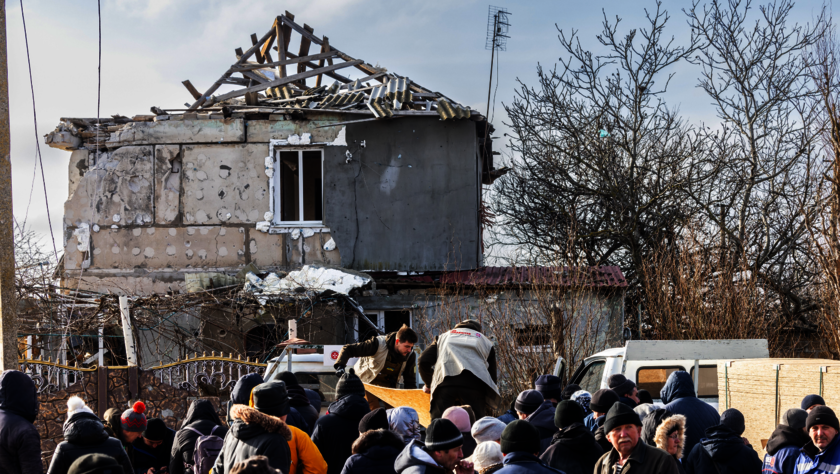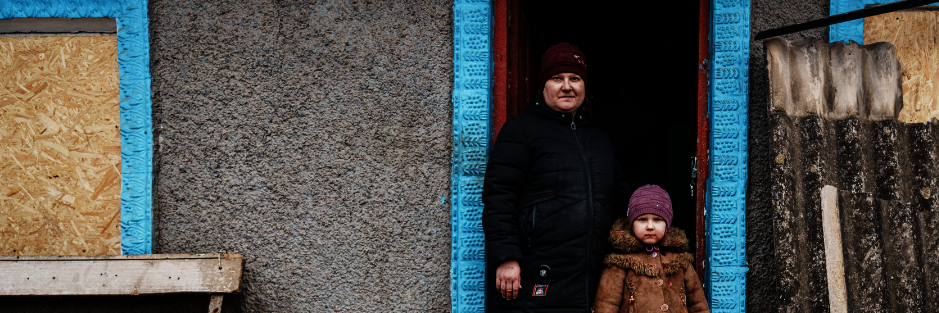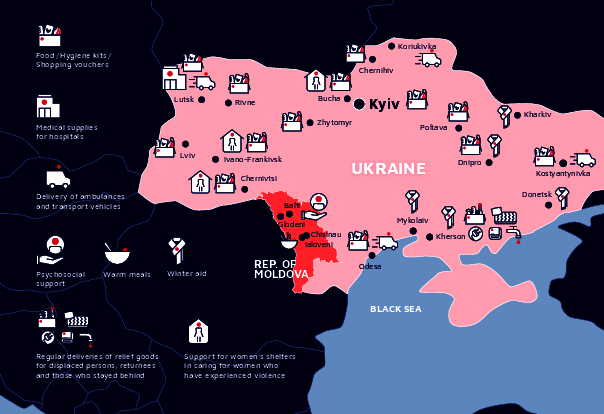International Assistance in Ukraine and neighbouring countries
Why we are on site
Russia's war of aggression against Ukraine, which began on 24 February 2022, has brought destruction and suffering to millions of people. More than 14 million Ukrainians who have stayed or returned are now in need of help. Around 7.9 million have fled the country (source: UNHCR), three million live there as internally displaced persons.
Basic services are no longer guaranteed in many places, particularly in the east and south of the country. Many people live without reliable water, gas or electricity supplies. The war is also putting a huge psychological strain on the Ukrainian population and the staff of local aid organisations. Neighbouring countries such as Poland, Romania and the small Republic of Moldova have taken in and cared for many refugees.
The war has also had a serious impact worldwide: Ukraine was considered the breadbasket for global grain exports. Due to shortages and therefore rising prices, African countries in particular are threatened with famine as a result of the loss of grain production.
What we achieve together with our partner organisations
As soon as the fighting began, Johanniter was able to distribute the first aid packages in the city of Poltava, followed by more than 58 lorries with around 700 tonnes of relief supplies within the first two months. Cooperation with companies, local partners and domestic Johanniter structures was crucial to the success of the aid in the first few weeks. While the initial focus was on food, nappies, blankets for the late winter and hygiene products, more and more medical supplies and medicines were delivered. From storage and distribution centres in Heidenau, Saxony, and via the partner organisation Tasuleasa Social in Bistritz, Romania, relief supplies were continuously delivered to more than 40 healthcare facilities.
Johanniter Hungary was supported at an early stage in setting up nine emergency shelters near the border with camp beds or kitchen equipment. In the Republic of Moldova, three partner organisations are providing help for refugees. While the organisation EcoVisio sets up and supports accommodation, a mobile team from CASMED looks after the mental well-being of refugees. The Eco-Razeni organisation prepares packed lunches every day, which it distributes to a total of 2,000 refugees.
Two years after the start of the war, emergency aid is essential for those who have stayed behind and those who have returned. This is why the employees of the Johanniter partners travel to the villages and towns along the front line in the south and east every day to support the people. They carry food, hygiene products, batteries, lamps, insulation material, roof shingles, firewood, coal and blankets. St John and its partners are also supporting four women's shelters in various regions of Ukraine, where mothers and their children who have experienced domestic violence or violence under Russian occupation can find refuge. In the shelters run by Johanniter's partner organisation ELEOS, they receive psychological, social and legal support from experts.

Our projects in Ukraine
-
Outreaches in the villages of the grey zone and the 0-zone
We improve access to food, hygiene, water supply and shelter.
-
Multi-regional IDP support
We support internally displaced persons in need.

